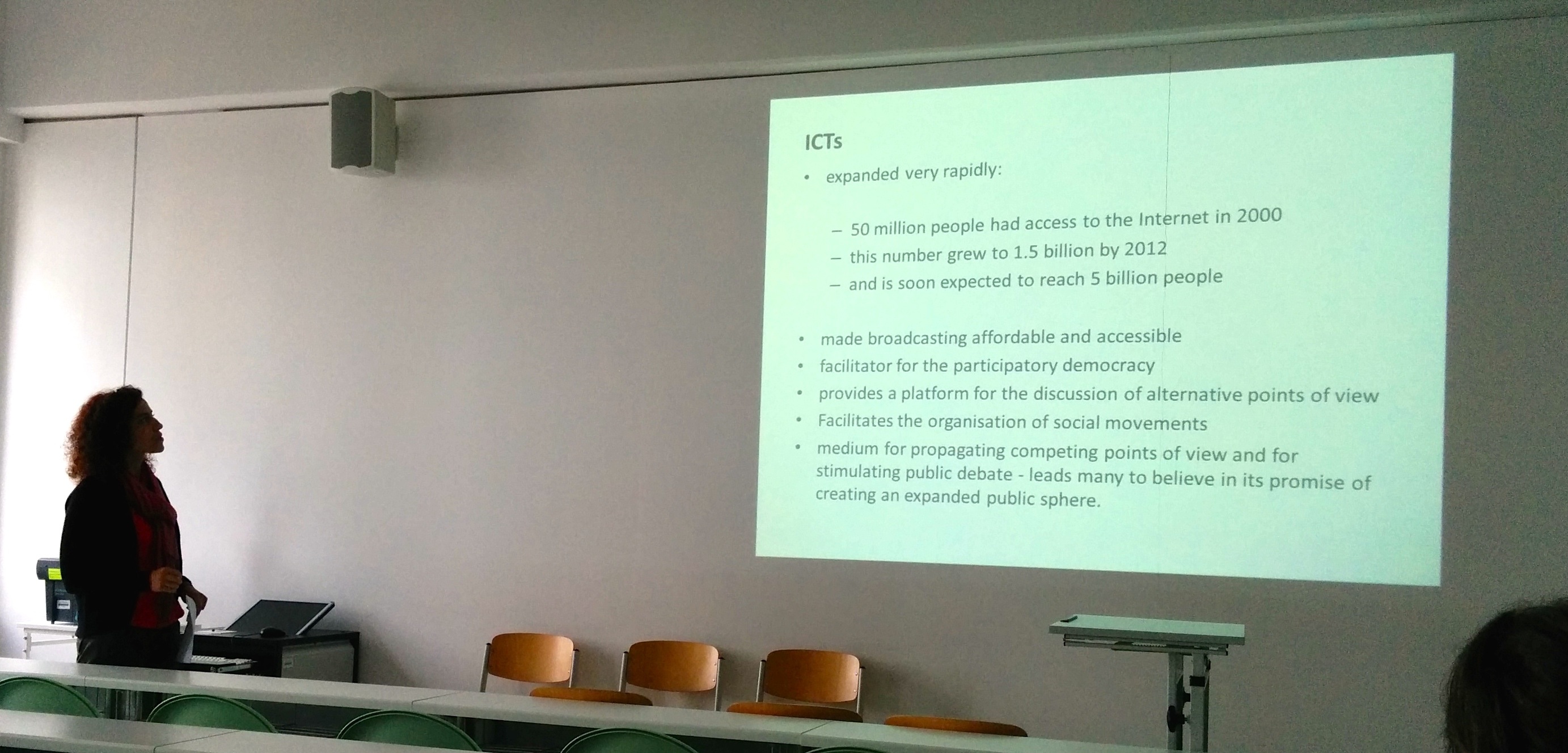By Christiane Kliemann
When listening to all the keynotes, panels and sessions, or simply joining the lively discussions between conference participants, there is the notion of an overall agreement that a broader new vision for society and the economy is most urgently needed. However, the elephant in the room is that such vision is almost impossible to shape, if it is to represent the diversity of movements, initiatives, projects and individuals who understand themselves as agents of change, and to unite them under the umbrella of a larger social movement.
Accordingly, the programme of the fourth conference day focused on "Visions and Strategies for Transformation", in order to translate the various models, findings and experiences into concrete action. Friederike Habermann, an economist who has been interested in alternative economies for many decades and served on the panel on potentials and limits of current civic movements, pointed out that it is hard to live the principles you preach in everyday life, even more so than in other alternative lifestyles. Demonstrations don’t work in the long term, as they only express demands and it is more important to show why the common people should change.
Leonidas Martin, a representative of the ‘artivism’ (Art meets Activism) approach, emphasized that political change isn’t all what is needed and that in fact many don’t understand or appreciate this. He considers the application of a change that is required or demanded already as "political". So he prefers to try and demonstrate what ‘The Good Life’ outside of capitalism actually is. An example was running a party in an employment office to demonstrate the potential ‘positivity’ of this time and the system’s flaws.
Micha Narberhaus from Smart CSOs was motivated by attending many inspiratihowonal discussions but had to notice that there was never a follow up discussion on ‘where next’ and ‘how’. His research project started to bring together people from NGOs and grass roots organisations from many different sources, with particular focus on people who have the energy to actually do something. The aim over the past three years is to have a more structured, ‘professional’ space.
Many of the global, large scale movements that started around ten years ago have found more success in moving to the local scale and engagement with the population directly. According to his experience, civil society and NGOs need to be careful about how it portrays and enacts the assumed opinions of the people it purports to represent. Sometimes they can end up mis-representing opinions due to their own agendas, limitations or misunderstanding. It also needs to be asked whether the term ‘movement’ has become overused and misused? When has a movement turned into something else and vice-versa. Another question is, how to appeal to people with concepts that are abstract or hard to understand.
The participative workshop "common vision for social-ecological alternatives" was an attempt to bring together actors from various backgrounds and experience the quest for such vision in a small setting, integrating the different perspectives and living-realities of the participants. It aimed at creating a space where people could express their priorities, personal visions, areas of action and concerns in an appreciative atmosphere. Although the workshop did not result in a concrete bottom-up vision, there was a common agreement that respectful listening and awareness of the different "languages" people use is an important first step towards it.
The lecture and panel discussion on scenarios for a post-growth-economy focused on the radical tranformation that society and the economy would have to undergo in order to at least come close to the vision of meeting the needs of all within the natural boundaries. Niko Paech emphasized that such society would have to entail lifestyles different to everything we have experienced up to now in our modern societies. It would entail to replace large parts of the globalized supply-chains with regional, less energy-intensive and more labour-intensive ones, complemented by patterns of community-driven subsistence and reduction of formalized working hours. And it would require to practice lifestyles that can do without flying, smartphones and car-centered mobility.
Clive Spash focused in his presentation on the necessity to bring about transformation on all institutional levels of society and to radically challenge the power structures, particularly the influence of industrial complexes, banks and multinational corporations on global institutional decision-making. He called on all social and ecolocial alternative movements to strongly bring forward their agenda while supporting Ulrich Brand in his his criticism of the globalized imperial mode of living. Such transformation would require the evaluation of possible "scientifc utopias" to address questions such as "How do we secure renewable energy supply under conditions of minimized demand? How do we challenge the capital-labour relationship and change the density of human habitation? How do we change communication to do without satellites and smartphones? Do we better build high-tech or low-tech ecovillages"?
There was no consensus, however, on the concrete actions to bring about such radical transformation, although it was encouraging to see that the vision itself was clearly shared by everyone in the room.
Shortly before the start of the Climate Camp and the Degrowth Summer School, we are changing the venue of our camp. We have found an even better place in close proximity to the open cast mine Garzweiler. Further information is available here

By Chris Ward In the scientific paper session on technological solutions for a degrowth society, it was refreshing to hear someone (unsurprisingly an engineer) mention that the degrowth movement could do with more practical projects and methodologies to run alongside the theoretical discussions. The OAE Project: Open Data and Open Source software for a sustainable economy The OAE project a...
On 14 March the last submission period closed for contributions to the conference. After a first quick review it was already clear that all expectations were far exceeded: more than 350 scientific papers were received from a broad range of disciplines such as economics, psychology, geography and urban planning. Further 260 proposals for practice-based activities were submitted by various civil-...